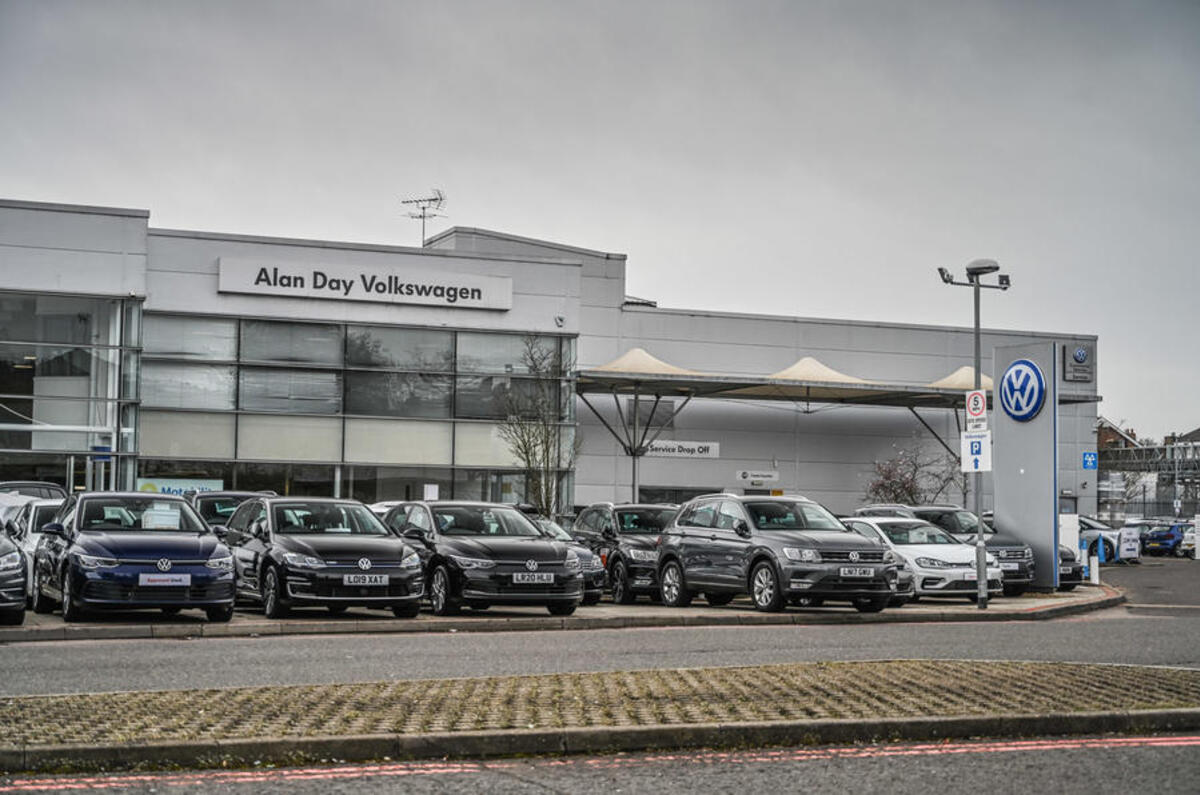New car registrations soared an unprecedented 3176.6% year on year in April, as customers flocked to recently reopened dealerships, one year on from the first lockdown.
Latest figures from the Society of Motor Manufacturers and Trader (SMMT) reveal the impact of dealerships being allowed to trade conventionally for the first time in several months.
Dealerships were almost universally closed in April 2020, which meant registrations plummeted some 97% to just 4321 units. Dealers were once again closed for much of the first quarter of 2021, but with non-essential retail allowed to open again from 12 April, 141,583 cars were registered by the end of the month.
The SMMT caveats this 30-fold increase by highlighting that it is "artificial" and that April's volumes remain 12.9% lower than the 10-year average.
The organisation has revised its forecast for 2021 as a result of the increase and expects to record 1.86 million registrations by the end of 2021, which would be a 13.9% year-on-year rise.
It notes that "retail demand saw the most significant recovery", with April 2021's 61,935 private registrations comparing with just 871 in the same period last year, when dealers were not allowed to operate the same click-and-collect services that shored up sales in early 2021.
Fleet sales also saw a marked return to near-normality, rising from 3091 units in April 2020 to 77,241 last month.
For the year to date, and including business sales, which have a smaller impact on overall figures, the UK has recorded 567,108 registrations in 2021, compared with 487,878 by the start of May last year.
Given the unusual contrast between 2020 and 2021, a substantial rise in registrations in all car segments was reported, with even non-hybridised diesel cars - increasingly less popular - recording an anomalous jump in demand of more than 1000%.
The largest increases were seen across electrified powertrains, with mild-hybrid (MHEV) diesel cars claiming a 12,300% increase, MHEV petrol cars soaring 17,000% and full hybrids some 24,000% year on year. Electric cars (EVs) recorded a more subtle 556% year-on-year rise, but SMMT figures show that their market share is up 3.2% for the year to date, at 7.2%.
The SMMT notes that, unusually, plug-in hybrids (PHEVs) were more popular than EVs in April and attributes this to changes in the government's Plug-in Car Grant (PiCG) scheme, which mean EVs costing more than £35,000 are now no longer eligible for state-backed incentives.









Join the debate
Add your comment
The thing I haven't heard mentioned on here is, Tyres, the black round things that cost a lot, well, RF Tyres do, anyway,apparently the Tyre particulates given of them as we drive along are bad for our health.
@HiPo289
EVs may suit some users but not everyone. If you think that diesels will become "socially unacceptable because of the enormous pollution they cause", then so will all ICE cars. Petrol cars of course produce more CO2 than diesels and all cars produce particulates - even EVs.
The uncomfortable truth is that we all need to drive less, but driving is cheaper than ever in part because the government has frozen fuel duty for 11 years. Not sure how the goverment will reduce our CO2 production with policies like that!
If sales have soared 3200% year on year since the dealerships reopened then is that not a slap in the face to all those who're trying to tell us online sales is the future?
Sounds like another nail in the coffin for Genesis, and that's before they've sold a single car in the UK.